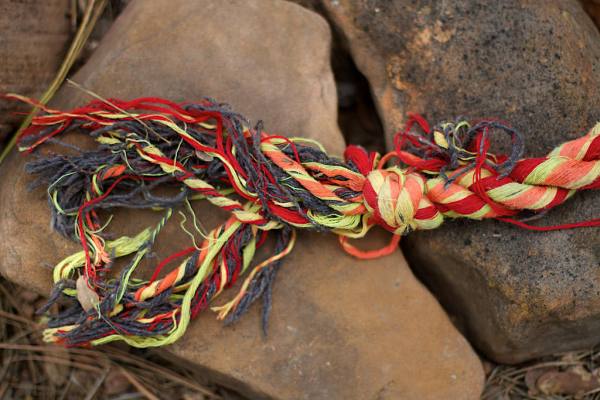It was a simple concept: a cryptocurrency whose units were always and constantly worth exactly one dollar, because they were backed by dollars held in a bank. Voila: dollars with the powers of crypto, such as the ability to quickly and permissionlessly transfer an arbitrary amount … and, er, a certain lack of pesky regulations.
Now there are $2.7 billion worth of Tether in circulation, and they are anything but simple. (Euro Tether also exist but they’re a rounding error.) Who created Tether? The same people behind the exchange BitFinex, with whom Tether shares a CEO, a CFO, and (until recently) a Chief Strategy Officer. That much we can be fairly confident about. But everything else about this money is shrouded in a deep fog of mystery tinged with misconduct.
Who buys Tether? It’s hard to say; you can trade USD for them at a couple of crypto exchanges, notably Kraken in addition to the BitFinex exchange, but I haven’t been able to find any recent public examples of anyone, institution or person, actually buying newly issued Tethers from Bitfinex. So who provides the US dollars which are said to back all newly issued Tether? It’s very hard to say.
Who audits them, to ensure those dollars are there? Well — actually — nobody, despite their web site‘s assurances that their reserve holdings are “subject to frequent professional audits” and “Our reserve account is regularly audited.” But they “dissolved” their relationship with their first auditors, Friedman LLP, without an audit ever being completed, and the “proof of funds” “transparency update” so prominent on their home page stresses it “should not be construed as the results of an audit.”
Do we have any reason to believe those dollars actually exist? Well, yes. The fact their “transparency report” is not an audit makes it very limited, questionable evidence, in my book … but it’s some evidence nonetheless. (It’s really quite something that we’re talking about some evidence, rather than an actual audit, for the existence of nearly three billion, with a “B,” dollars which are theoretically backing a very widely used asset.) Furthermore they appear to have banking relationships in Puerto Rico, and/or with ING, and the massive growth in total bank deposits in Puerto Rico over the last year or so roughly corresponds with the number of Tethers which have been issued in that time.
How do you redeem Tether for US dollars? That’s … both hard and easy to answer. I’ve been following the Tether saga with some interest for a full year and I have yet to come across any public example of Tether actually doing this for anyone. Ever. Their most recent public announcement on the subject, from the end of last year, says “exchanges and other qualified corporate customers can contact Tether directly to arrange for creation and redemption. Sadly, however, we cannot create or redeem tether for any U.S.-based customers at this time.”
However! The most interesting thing about Tether is that you don’t need to redeem them for dollars. As long as a cryptocurrency exchange believes that one Tether is worth one dollar, you can just use your Tether to buy bitcoin, or ether, or whatevercoin, and then transfer / convert that to dollars. It’s those cryptocurrency:Tether exchange rates which actually matter. As long as those are maintained, it’s actually irrelevant to the average user whether Tether is actually backed by dollars … which obviously opens up a lot of space in which shenanigans might occur.
What are those whiffs of misconduct to which I previously referred? I mean. How much time do you have? One passionate critic, known as Bitfinexed, has been writing about this for quite some time now; it’s a pretty deep rabbit hole. University of Texas researchers have accused Bitfinex/Tether of manipulating the price of Bitcoin (upwards.) The two entities have allegedly been subpoenaed by US regulators. In possibly (but also possibly not — again, a fog of mystery) related news, the US Justice Department has opened a criminal investigation into cryptocurrency price manipulation, which critics say is ongoing. Comparisons are also being drawn with Liberty Reserve, the digital currency service shut down for money laundering five years ago:
So what the hell is going on? Good question. On the one hand, people and even companies are innocent until proven guilty, and the opacity of cryptocurrency companies is at least morally consistent with the industry as a whole. A wildly disproportionate number of crypto people are privacy maximalists and/or really hate and fear governments. (I wish the US government didn’t keep making their “all governments become jackbooted surveillance police states!” attitude seem less unhinged and more plausible.)
But on the other … yes, one reason for privacy maximalism is because you fear rubber-hose decryption of your keys, but another, especially when anti-government sentiment is involved, is because you fear the taxman, or the regulator. A third might be that you fear what the invisible hand would do to cryptocurrency prices, if it had full leeway. And it sure doesn’t look good when when at least one of your claims, e.g. that your unaudited reserves are “subject to frequent professional audits,” is awfully hard to interpret as anything other than a baldfaced lie.
How can we ever find out? I see four plausible answers: 1) a serious, competent, trustworthy, professional organization actually performs a full audit; 2) a legal / regulatory / criminal investigation forces Tether to open up their books; 3) a whistleblower tells all; 4) we don’t, ever. In the interim, this misconduct-tinged fog will continue to cover their entire enterprise … and their users won’t care, as long as one Tether buys you exactly as much bitcoin as one dollar, on every cryptocurrency exchange which supports them.
